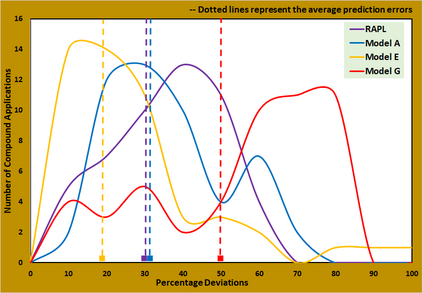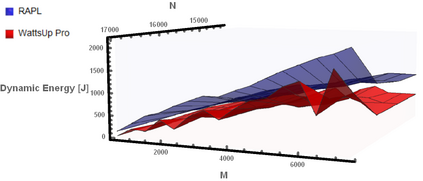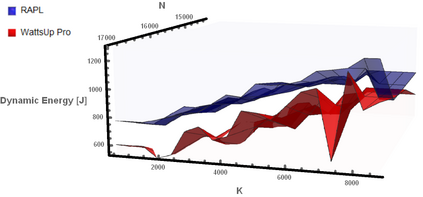Energy is now a first-class design constraint along with performance in all computing settings. Energy predictive modelling based on performance monitoring counts (PMCs) is the leading method used for prediction of energy consumption during an application execution. We use a model-theoretic approach to formulate the assumed properties of existing models in a mathematical form. We extend the formalism by adding properties, heretofore unconsidered, that account for a limited form of energy conservation law. The extended formalism defines our theory of energy of computing. By applying the basic practical implications of the theory, we improve the prediction accuracy of state-of-the-art energy models from 31% to 18%. We also demonstrate that use of state-of-the-art measurement tools for energy optimisation may lead to significant losses of energy (ranging from 56% to 65% for applications used in experiments) since they do not take into account the energy conservation properties.
翻译:现在,能源是一种一流的设计限制,与所有计算环境的性能一样,也是一流的设计限制。基于性能监测计数(PMCs)的能源预测建模是应用执行期间预测能源消耗的主要方法。我们使用模型理论方法来以数学形式拟订现有模型的假定特性。我们扩展了形式主义,增加了迄今尚未考虑的有限形式的节能法的属性。扩大的形式主义定义了我们的计算能源理论。通过应用该理论的基本实际影响,我们提高了最新能源模型的预测准确性,从31%提高到18%。我们还表明,使用最先进的能源优化计量工具可能导致大量能源损失(在实验中使用的应用从56%到65%不等),因为它们没有考虑到节能特性。










